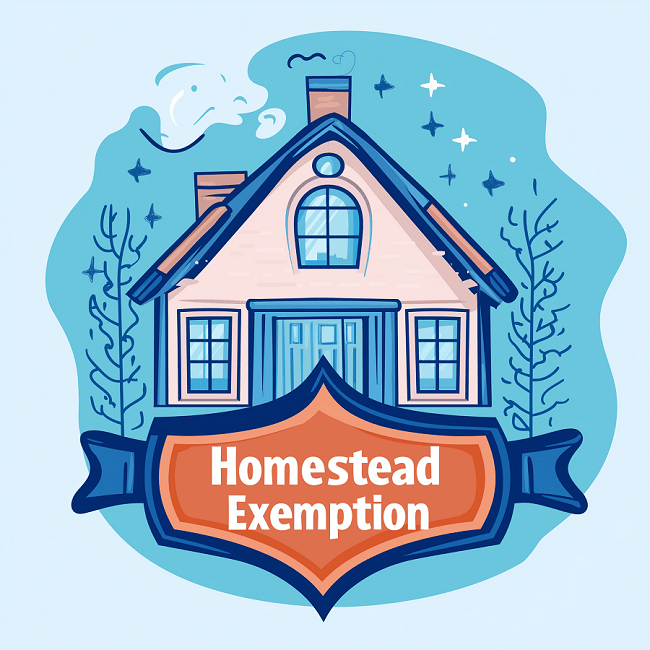One of the biggest misconceptions about estate planning is that you need a lot of money or assets in order to make it worthwhile. Not true. In fact, every person in California – rich or poor – already has an estate plan provided by the State of California. It is called “intestate succession.” Now, if you are fine with the State directing your assets and controlling how and when, and whether your loves ones receive money, then stick with the State’s plan. If not, you need a customized estate plan drafted for your unique situation.
Estate planning is less about what you have and more about who you love. In fact, the best estate plans are drafted to operate in the “background” of your life while you are alive; so that most of the time you do not even know it’s there. The reality is, whatever estate plan you have, it is your loved ones – your surviving spouse, your children and grandchildren, your pets, etc. – that get to experience how well, or how poorly you planned.
This post will discuss all the ways you can plan for the people you love – because that is what really matters, isn’t it?
Planning for Your Surviving Spouse
One of the first people you should consider when estate planning is your surviving spouse. You need to answer the following questions:
- What kind of life do you want he or she to have?
- Is it likely that he or she will remarry?
- Are you worried about a potential step-father or step-mother coming into the situation?
The art of estate planning can equip you to address the various combinations of answers to these questions. For example, if you want your spouse to have the easiest possible administration after your death, you can get a disclaimer trust. If you want to protect your spouse from creditors, judgments, substance abuse, and other nefarious occurrences, you may consider an A-B-C trust with a Clayton election to provide your spouse with additional protections. If you have children and are worried about the advent of a possible step-mother or step-father then you can create an A-B Trust to protect your share of the estate for your children – ensuring that a step-parent cannot cut them out.
Planning for Your Children
When it comes to our children there are so many things us parents try to protect them from. We buy the best bike helmets, we check safety ratings on toys, we are constantly in a state of alert from any potential dangers or threats to our kids.
Your estate plan can (and mostly should) be designed to be a device that constantly protects your children. After you pass on, your children will be faced with a series of dangers and threats. If you have planned correctly, you can minimize and eliminate most of these threats. Here are some common examples and solutions:
1/ Substance abuse, bad choices, creditors, divorce, and judgments
As our children grow and their world expands beyond the walls of your home, they will encounter many influences. Most of them will be good. Some of the will be bad. Unfortunately, we never know how strongly a particular person or thing will influence our children. Thus, when we are estate planning we are dealing with a certain amount of the unknown. But there are some things we can do today to develop strategies to protect our children.
For example, let’s say that your son or daughter is addicted to drugs. He or she asks for money. Do you give it to them? Many parents would say “absolutely not” because they are worried that the money will only enable their addiction. So why should your estate plan be any different?
One of the biggest mistakes people make when estate planning is allowing their children to get an inheritance outright. That means when they turn 18 or immediately upon your death they get their inheritance. Since a parent can never truly know the types of influences or the degree to which those influences will impact our children, parents can do three important things in their estate plans.
First, you can stagger the ages at which your children receive an inheritance. For example, you can say that they do not get an inheritance until age 25. Or you can have stair-stepping distribution provisions which says something like 30% at age 25, 50% at age 30, and the rest of the inheritance at age 35. This helps protect and insulate your children from using all of the inheritance at once, or losing their inheritance to a bad decision.
Second, you can condition the inheritance. For example, you can say a child does not get an inheritance until they graduate from college. Or you can reserve a portion of your estate for a specific event. I’ve had clients put into their trusts a provision saying that the trustee is to take $20 from the trust to buy their son his first drink at age 21. I’ve had parents reserve $50,000 to help a daughter pay for a wedding. These kinds of conditions can actually help guide your children into making the right life choices, and can also be a great way for your trust to walk with your children and be there for them at all the major events in their life.
Third, you can create a “spendthrift” provision in your trust, which prevents the trustee from giving your children any money if they have a substance abuse issue, are going through a divorce, have significant debt, or have judgments against them.
When these three strategies are employed, your living trust becomes an actual plan. A plan for every possible scenario, and plan which protects your children at each stage of their life.
2/ Minor Children
If you have minor children at home, then there is another issue to worry about. Who will care for them if you cannot? Time for a personal story:
When my oldest was about 2 years old, my wife and I had a date night and left him with a babysitter. Now, we usually leave our kids with family (because my wife’s family lives so close by). But this time we hired the teenage daughter of a family friend. While we were on the date, my brain went into “estate planner” mode and a horrifying thought occurred to me.
I realized that if my wife and I never made it home – if we died in an accident – my kids would be taken by Child Protective Services. First, the person who was watching our kids was not an adult. Second, the person watching our kids was not a family member. And finally, we never left any instructions for our babysitter in case of an emergency.
So, had something happened to us, the police would have no choice but to take our children into custody until an adult family member could be located.
As a result, the way I plan for minor children changed forever.
At a minimum every parent with minor kids needs the following:
- A legally documented nomination for a long-term guardian for minor children.
- An emergency card in your wallet that identifies you as a parent with minor children and provides contact information for family members who can be reached to take the kids in an emergency.
- Emergency instructions for a babysitter identifying the people he or she would need to call in the event the police knock on the door to notify the family of an accident.
- Instructions to your long-term guardians regarding how you would like your children to be raised and immediate steps to take in the event they need to step in.
Planning for Your Pets
Whether you have human children or not, a lot of people have fur babies. Although the law does not have a succession plan for your fur babies, it does allow you to include them into your estate plan, and even make an entire trust just for them – the “Pet Trust.”
This post will not cover all of the things to consider regarding pet trusts, except to introduce the idea as a possibility.
Importantly, if you have fur babies, since the law does not give them any rights to your estate as a matter of law, you will need to engage an experienced estate planning attorney to help you plan for them.
So, here is what you need to know. You can set up a special trust called a “pet trust” wherein your trustee is given instructions to utilize your estate (or a defined portion of your estate) for the care and maintenance of your pets. After your pet or pets passes on, then the trust would tell the trustee to dispose of the residue of the pet trust to your family members, friends, charities, or anyone you decide to name as the residual beneficiaries.
The easiest way to do this is through a trust (although you could have a will that creates a testamentary pet trust).
There are all sorts of people we love, both human and non-human. Estate planning is designed for them. Good estate planning makes life easier for your loves ones, and even cares for them after you are gone. If you are interested in estate planning for the people you love in your life, give us a call at (951) 228-9979, or if you are in Orange County our phone number is (949) 464-4483. Alternatively, you can schedule a time and date for us to call you by clicking this link.




